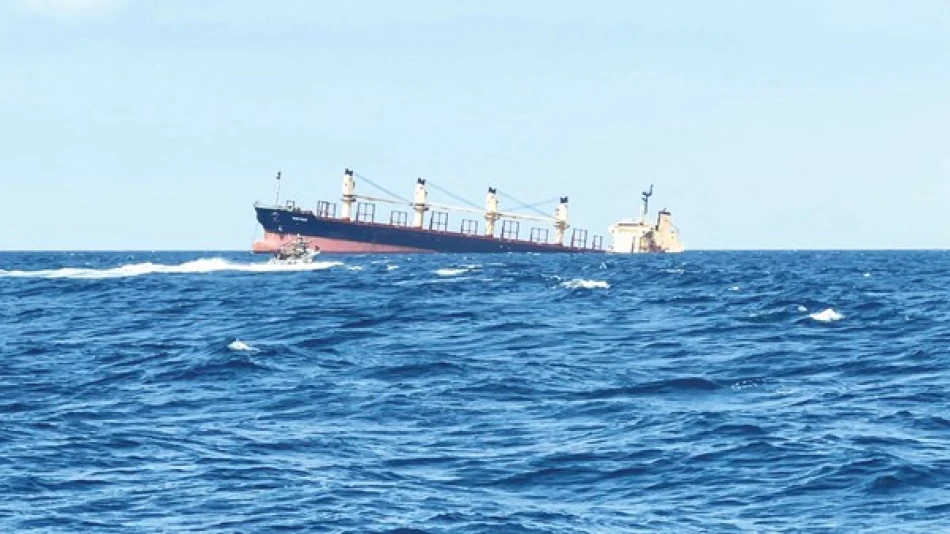
Yemen Calls for Concrete Global Action to Curb Houthi Threat
Yemen's government is calling on the international community to take concrete action against the Houthis after a new UN report detailed widespread human rights violations and threats to regional security. The 2025 UN experts report documents systematic repression, forced disappearances, child recruitment, and continued weapons smuggling that enables attacks on Red Sea shipping routes.
Yemen's Information, Culture and Tourism Minister Muammar al-Eryani said the UN report confirms what his government has been warning about for years. The Houthis are running what he called "a network of repression, theft and terrorism" in areas under their control.
The report reveals disturbing details about mass arrests, torture, forced disappearances, and restrictions on media freedom. It also shows how the Houthis are stealing public and private funds while recruiting children for their military operations. They're using state institutions and public resources to push their sectarian agenda.
But here's what makes this particularly concerning for global markets: the report highlights how weapons continue flowing to the Houthis through maritime smuggling routes. This is helping them build military capabilities that directly threaten international shipping lanes in the Red Sea and Gulf of Aden.
The Red Sea handles a massive chunk of global trade and energy shipments. When the Houthis attack ships there, it's not just a regional problem - it disrupts supply chains worldwide and drives up shipping and insurance costs. The waterway connects Europe, Asia and the Gulf, making it one of the world's most critical trade routes.
Al-Eryani wants the UN and international community to turn this report into real action. He's asking for practical steps to limit the Houthis' threat and hold their leaders accountable for crimes. The timing is significant - the Houthis are still holding dozens of UN staff members in Yemen.
Political analyst Adel al-Madouri told local media that Houthi escalation in the Red Sea is one of the region's most dangerous issues. He said continued attacks are turning what should be a safe commercial passage into an open conflict zone. Any threat to this waterway means supply chain disruptions and higher costs for energy and goods moving between the Gulf and global markets.
Another analyst, Mahmoud al-Taher, believes the Houthis are using these waterways as political and security pressure cards. He thinks they're following an agenda that goes beyond Yemen's borders, taking advantage of international inaction to position themselves as a cross-border threat.
The economic stakes are substantial. The Red Sea route is crucial for oil and gas exports from Gulf countries to Europe and beyond. When shipping companies have to reroute around Africa instead, it adds weeks to delivery times and millions in extra costs.
Al-Taher warns that the international community is still treating these threats as isolated incidents rather than part of a broader strategy targeting Arab security and global interests. The Houthis appear to be using these attacks to force negotiations that would serve their interests.
For investors and shipping companies, this creates ongoing uncertainty in one of the world's busiest trade corridors. Insurance rates for Red Sea transits have already spiked, and some major shipping lines have suspended operations in the area entirely during previous escalations.
Most Viewed News

 Layla Al Mansoori
Layla Al Mansoori






